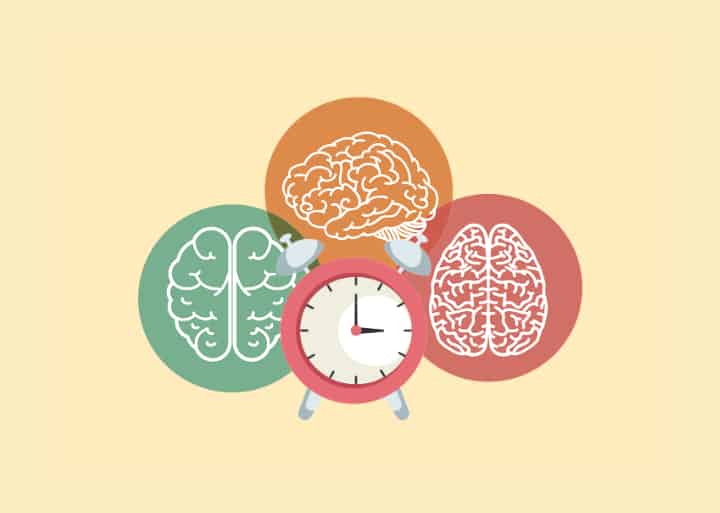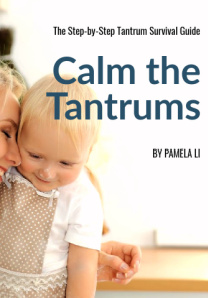Sensitive Periods In Brain Development
| What is Critical Period | Disquisitional Menstruation Hypothesis | Sensitive Menses | Why is Critical Catamenia Of import | Disquisitional Period for Linguistic communication Acquisition |
What are Critical Periods
Disquisitional periods are phases during which the brain cell connections are more than plastic and receptive to the influence of a certain kind of life experience. These connections, called synapses, can form or strengthen more than easily during this period of time. Synaptic connections unremarkably mature and stabilize after this fourth dimension menses, making the wirings harder to change at a later on historic period. Lacking certain experiences in the early on years of life can accept a profound effect on developing neural connections.

Critical Catamenia Hypothesis
According to the Disquisitional Period Hypothesis, during the critical period, new skills or traits can exist formed given the proper life experience. If the necessary experience is not bachelor during this time, it becomes much harder, less successful, or even impossible to larn the skill or trait after the window of opportunity closes.
This is proven true in sensory systems in humans and animals, such equally the development of the visual system.
In animal studies, if 1 centre (but not both) is covered correct later on birth, the deprived eye will lose visual acuity permanently, even if the covered period is brief postnatal. This is because sensory deprivation and the lack of visual input during that fourth dimension can cause structural changes in the brain 1 .
Critical Menstruum vs Sensitive Flow
The chief departure between a disquisitional catamenia and a sensitive menses is that the critical period is a limited time frame during which certain development can occur, while the sensitive menstruation is a window of time where development is more easily achieved.
A sensitive catamenia is similar to a critical period in which neural circuits are relatively more plastic and more sensitive to the influence of experience. Even so, new synapses can nevertheless form for an extended period of time outside of the sensitive menstruation despite being harder.
Some scientists refer to these equally weak disquisitional periods.
For more aid on calming tantrums, check out this step-past-step guide


Why Is Disquisitional Period Important
Critical periods are important because many crucial functions of our body are established during a specific time, and some only during those periods.
Inquiry findings take found that the following functions are best developed during their disquisitional periods.
Emotional regulation
Emotional self-regulation is the ability to monitor and attune emotions. Learning to self-regulate is a key milestone in a child's early development. It tin significantly affect a child'south relationships, bookish performance, mental health, and well-being in the long term.
In human studies conducted in a Romanaian orphanage, only orphans who were adopted by foster families before the historic period of 2 were able to develop emotional regulation skills comparable to those of the never institutionalized children 6 . Those who remained in the orphanage suffered from deprivation of social contact or maternal care. Social impairments and the lack of emotional regulation skills were evident.
The sensitive period of emotional cocky-regulation is therefore believed to be from birth to age 2.

Vision System
There are different critical periods for different visual functions. They usually fall between birth and puberty vii .
Early research shows that visual acuity develops from birth to effectually age 5 and the period between ages 3 and 5 shows the near growth.
Stereopsis, the perception of depth, has a critical period that ends at 2 years of age.
Susceptibility to harm in visual development as well has its own critical period. For case, amblyopia, the status where i of the eyes has reduced vision considering the center and encephalon are not working together properly, can result betwixt several months of age and 7 to viii years.

Absolute Pitch in Music Listening
Absolute pitch is the ability to identify and produce the perfect pitch of a musical sound without external sounds as reference points 8 .
Children who started musical preparation betwixt ages 4 and 6 are virtually likely to reach the absolute pitch.
Simply preparation that occurs after the age of 9 rarely leads to that level of proficiency 9 .
Auditory Processing
For children who are born with built deafness, the absenteeism of auditory input from birth can severely affect their power to learn to speak.
Scientists have constitute that when cochlear implants are installed to bypass the non-functional inner ears in deaf children before age 3.5, they can most likely learn to speak successfully, especially if they are likewise exposed to language-rich environments 10 .

Critical Menstruum For Language Acquisition
When applied to language learning, the Disquisitional Menses Hypothesis states that there is a critical time during which individuals are more than capable of acquiring new languages with native-like proficiency.
The critical menstruation for linguistic communication development begins in early childhood and concludes before long before the onset of puberty two .
After that period of evolution, it becomes much more difficult to acquire new language competency 3 and total mastery, even in a linguistically rich surroundings.
The original hypothesis was first popularized past Eric Lenneberg, a linguist and neurologist, in a landmark book Biological Foundations of Language in 1967.
Co-ordinate to this theory, the process of learning a new language is constrained by a disquisitional period. There is a singled-out aperture in outcomes betwixt learning within the critical flow and learning outside it. The time of that discontinuity reflects the terminate of the critical menstruum 4 .
Withal, it is still possible for adults to learn to use a new language beyond puberty. Information technology is simply harder and may take longer compared to young children.
Thus, learning perfect phonology and grammar in a 2nd linguistic communication has a critical menstruation, but learning a strange language (as full general speakers) seems to have more of a sensitive period rather than a critical period (although this alternative definition is still controversial v and individual results do vary).
What Parents Should Know
Information technology may feel overwhelming that in that location are then many dissimilar critical periods at different ages in brain development.
Parents who have "missed" some of the critical periods are worried that their children are now destined to fail. Those who have "met" the critical periods successfully are glad that their children are now set up for life and their jobs are washed.
The truth is that neither of these is true.
The critical menstruum is a controversial science concept because it implies there is a difficult cutoff. If the skill is non developed during that time, the opportunity to develop this function will be gone forever.
But some of those skills are actually experience-expectant rather than experience-dependent. Experience-expectant means the stimuli from life experiences are expected in normal evolution. For instance, language, vision, and hearing are expected experiences practically guaranteed to exist bachelor to human infants. Parents rarely have to make an endeavour to innovate such sensory experiences.
Abilities that depend on the presence of specific experiences are experience-dependent. Parents need to provide the appropriate early life experiences for these skills to develop. Emotional regulation, speech & language, and absolute pitch are feel-dependent examples.
Just the good news is many experience-dependent traits accept sensitive periods rather than critical periods. Even when early on exposure is missing during the optimal time, the skills can still develop. It might just be harder or have longer.
Amidst the experience-dependent abilities, emotional regulation plays an important part in a kid'south growth and future well-being. And then the most of import thing for parents to do is to provide a nurturing environment for their children and aid them build resilience.
Concluding Thoughts On Critical Menses
Every bit parents, it's meliorate if nosotros brand sure our children are not deprived of critical experiences, especially during critical periods. Withal, information technology doesn't mean we should buy the latest "Mozart for babies" DVD or sign our toddlers upward for dozes of enrichment classes. What our children need is a nurturing environment and exposure to common life experiences, such as talking, playing, and reading to them.
There is also no need to sweat over missing the optimal times considering it's never besides belatedly to start providing adept life experiences to our kids.
References
-
1.
Hensch TK. Critical menstruum plasticity in local cortical circuits. Nat Rev Neurosci. November 2005:877-888. doi:10.1038/nrn1787
-
2.
Hakuta Thou, Bialystok E, Wiley E. Disquisitional Evidence. Psychol Sci. January 2003:31-38. doi:10.1111/1467-9280.01415
-
3.
Friederici Ad, Steinhauer K, Pfeifer E. Encephalon signatures of artificial linguistic communication processing: Evidence challenging the disquisitional period hypothesis. Proceedings of the National Academy of Sciences. January 2002:529-534. doi:ten.1073/pnas.012611199
-
4.
Birdsong D. Second Language Acquisition and the Critical Period Hypothesis. Routledge; 1999.
-
five.
Birdsong D, Molis Chiliad. On the Evidence for Maturational Constraints in 2d-Language Conquering. Journal of Memory and Language. February 2001:235-249. doi:10.1006/jmla.2000.2750
-
6.
McLaughlin KA, Sheridan MA, Tibu F, Play a trick on NA, Zeanah CH, Nelson CA 3. Causal effects of the early caregiving environment on evolution of stress response systems in children. Proc Natl Acad Sci USA. Apr 2015:5637-5642. doi:10.1073/pnas.1423363112
-
8.
Levitin DJ, Rogers SE. Absolute pitch: perception, coding, and controversies. Trends in Cerebral Sciences. January 2005:26-33. doi:10.1016/j.tics.2004.11.007
-
9.
Gervain J, Vines BW, Chen LM, et al. Valproate reopens critical-period learning of absolute pitch. Forepart Syst Neurosci. 2013. doi:10.3389/fnsys.2013.00102
-
10.
Kral A, Sharma A. Developmental neuroplasticity after cochlear implantation. Trends in Neurosciences. Feb 2012:111-122. doi:ten.1016/j.tins.2011.09.004
Sensitive Periods In Brain Development,
Source: https://www.parentingforbrain.com/critical-period/
Posted by: samonsatrom1955.blogspot.com


0 Response to "Sensitive Periods In Brain Development"
Post a Comment